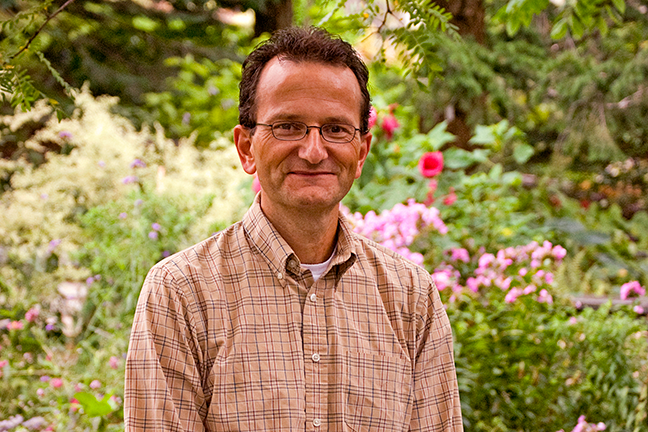George Karypis Part of $4.5 Million Grant to Apply Machine Learning to Material Sciences

Department of Computer Science & Engineering Professor George Karypis is a co-principal investigator on a $4.5 million grant from the National Science Foundation (NSF). The four-year project will establish foundational machine learning models that can be applied to material sciences. This new model called FERMat is a joint effort between Karypis (Computer Science & Engineering) and Ellad Tadmor (Aerospace Engineering and Mechanics) from the University of Minnesota, Stefano Martiniani (Physics and Chemistry) from New York University, and Adrian Roitberg (Chemistry) from the University of Florida, as well as industry support from Amazon Web Services (AWS).
Building off the success of large language models like ChatGPT, FERMat will use machine learning techniques to understand the underlying physics in materials sciences in order to build a model that is generalizable to a variety of applications. Generally, the machine learning process would start by using a large amount of data to train the model on each specific item, in this case types of materials. This multi-step process takes a lot of time and data. The premise of building a foundational model is that if there is a sufficiently large model trained on a variety of data, then that model can generalize to other material types by itself or using just a few examples, bypassing part of the typical process.
“We have been working on machine learning-based methods to replace first principle methods like density-functional theory,” said Karypis. “The overall goal is to be able to predict material properties. First principle methods limit the ability to apply them at scale. How do you replace methods based in physics with machine learning methods so that we can work faster? This project is building a new foundational model for material science to solve that problem.”
Karypis will lead the computer science arm of this project with the intention to make these new methods and models available so others can use it on their own data.
“Part of my research has to do with the machine learning systems side of things; in other words, how do you develop approaches to train those models efficiently,” said Karypis. “The other main aspect of my work is applying these approaches to other domains. Both of these lines of work are currently exploding and we hope to be part of that discussion and discovery. If we can develop an approach to train new models that is easier and cheaper, we can aid scientific discovery in a number of areas by lowering the barrier to entry.”
The FERMat project grew out of the ColabFit effort led by Tadmor at the U of M. The ColabFit project aims to create a framework to facilitate the training and use of machine learning models in materials science. Specifically, FERMat will be aimed at molecular and material property prediction.
“One area that we are looking at deals with battery use cases and energy storage,” said Karypis. “Could we apply some of those concepts to things related to carbon capture, water purification, and other bioremediation use cases. The ultimate goal is to make it easier to develop materials that have the desired properties for any given project.”